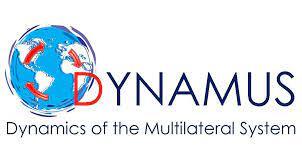
About this project:
The strengthening of multilateral institutions has been one of the European Union’s strategic priorities in its external action, as reflected in the 2003 European Security Strategy. However, the interaction between the EU and multilateral institutions in the different domains of global governance has been a subject that has seldom been explored scientifically. The DYNAMUS project (2010-2012) provided a solid basis for a more thorough analysis of the role of the European ‘single voice’ in the impact of the EU on multilateral institutions and, on the other hand, the impact of multilateral institutions on the EU. One of the most important conclusions of the research is that, in order to explain the influence of the EU in international institutions, it is necessary to go beyond the analysis of its single voice – which is a necessary element, but not sufficient in itself, and can even be counterproductive – and take into account changes in the power structure and the normative rejection that the EU suffers in an increasingly sovereignist and less Western-centric world.
The hard core of the project produced two edited books that collected a large number of case studies in fields as diverse as trade and development policies, energy and environment, disarmament and conflict management, and human and social rights. One of them, Cambio Mundial y Gobernanza Global (Tecnos 2012), edited by Esther Barbé, analysed the interaction between the EU and international institutions. The other, When Multilateralism hits Brussels: The influence of international institutions on the European Union (Palgrave 2012), edited by Oriol Costa together with K.E. Jørgensen, explored in particular the influence of international institutions within the Union.
Apart from these two books, the results and conclusions of this research have been published in the form of a number of articles in scientific journals and chapters in edited books, such as the contribution by Ben Kienzle and Oriol Costa to the Routledge Handbook on the European Union and International Institutions (Routledge 2013), edited by Knud-Erik Jørgensen and Katie Verlin Laatikainen. As for chapters in edited books, Costa collaborated in the book Between Autonomy and Dependence – The EU Legal Order and the Influence of International Organisations (Springer 2013) and Esther Barbé, Anna Herranz-Surrallés and Michal Natorski participated in the book Making Sense of Diversity: EU’s Foreign Policy through the Lenses of Discourse Analysis (Routledge 2013). Mention must be made of articles published in international journals such as ‘Contending metaphors of the European Union as a global actor: Norms and power in the European discourse on multilateralism‘ in the Journal of Language and Politics (Barbé, Herranz-Surrallés and Natorski 2015) or Benjamin Kienzle’s ‘The Role of Ideas in EU Responses to International Crises: Comparing the Cases of Iraq and Iran‘ in Cooperation and Conflict (2013). Throughout the project, the research group has worked closely with similar projects at European level such as EU-PERFORM and GREEN.
